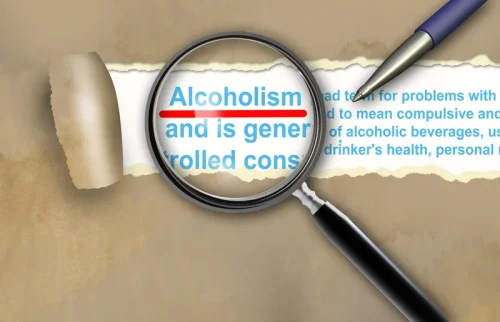Whats the Link Between Depression and Alcoholism?

This was filled once a week by the principal researcher and twice a week by the CBHW. Both the P.I and the CBHW reports on the drinking status of the participants were compiled weekly. Any discrepancy between the two structured reports was confirmed by a home visit by the CBHW. A separate survey published in the International Journal of Environmental Research and Public Health found that nearly half of people who reported increased drinking during the pandemic said stress was to blame. Other reasons for the uptick included boredom and availability of alcohol. Then people “fall into a kind of loop” of drinking and depression, and the two conditions feed off each other.
Dialectical Behavior Therapy (DBT)
Some people never notice feelings of depression — or any negative effects at all — after drinking moderately. Others might begin feeling depressed or anxious after just one drink. Drug withdrawal is usually an aversive experience, and it can be a life-threatening process in individuals who have a long history of very high doses of alcohol and/or barbiturates. A history of high doses of substances is of such concern that people who are trying to overcome addiction to these substances should only do so under medical supervision.
- Medication can provide consistent support to help with the mental and physical effects of depression.
- Drinking can seem like an easy way to cope with difficult emotions in the moment, but it’s generally not effective in the long run.
- During therapy, you can learn coping mechanisms that can help you return to life without drinking.
- Barbiturates and benzodiazepines share in common their ability to serve as agonists of the gamma-aminobutyric acid (GABA) neurotransmitter system.
Treatment of Co-Occurring AUD and Depressive Disorders

Drinking a lot may worsen these feelings, which may actually drive further drinking. Depression may even cause people to begin consuming large amounts of alcohol. Depression is a common and serious mood disorder, which can impact your thoughts, feelings, and behaviors.
Results
For some, depression hits first and drinking becomes a way to self-medicate. You may not realize how much alcohol you’re actually drinking in a week. A good first step is to keep a record of how much alcohol you drink and of when you don’t drink throughout the week. Some medications shouldn’t be mixed with alcohol as this might make you sick.
- In this article, learn more about the links between alcohol and depression, as well as when to see a doctor.
- Understanding the link between alcohol and depression can help you better manage depression after drinking, or better yet, prevent it from happening in the first place.
- It has grown to include treatment for many conditions including depression and substance use disorders.
- This article was supported by the Charles Engelhard Foundation and National Institute on Drug Abuse grants K23DA and K24DA022288.
How we reviewed this article:
People with depression may use alcohol as a form of self-medication. Drinking alcohol can become a coping mechanism to deal with feelings =https://ecosoberhouse.com/ of hopelessness, numbness, guilt, and worthlessness. During therapy, you can learn coping mechanisms that can help you return to life without drinking.
- Second, AUD may undermine a person’s psychological mechanisms to cope with traumatic events, by disrupting arousal, sleep, and cognition, thus increasing the likelihood of developing PTSD.
- A 2012 study found that 63.8% of people who are dependent on alcohol are also depressed.
- For example, a person with frequent episodes of severe depression may turn to drinking to self-medicate.
- You can, however, take steps to lower your chances of emotional side effects when drinking.
The two conditions often co-occur with anywhere between 33% and 63.8% of people with AUD also having depression. People who have both tend to have more drug addiction severe symptoms than those who have only one disorder. Feelings of sadness, lack of energy or trouble sleeping can be common occurrences that individuals experience in their daily lives.


A mental health professional will generally treat a person’s SUD and depression together. As symptoms of the conditions may overlap, so will their treatments. Certain medications and therapies can treat both SUD and depression, and treating the conditions simultaneously may be more effective. The increased reports of substance misuse demonstrate the harm communities experienced as an indirect result of COVID-19. According to the American Medical Association, every state in the United States reported a spike or increase in overdose deaths or other problems during the pandemic. The increase in deaths may be related to more people seeking drugs, such as fentanyl, as a form of self-medication for mental health conditions.

Alcohol and Depression FAQs

First, heavy alcohol use may increase the likelihood of suffering traumatic events, such as violence and assault. Second, AUD may undermine a person’s psychological mechanisms to cope with traumatic events, by disrupting arousal, sleep, and cognition, thus increasing the likelihood of developing PTSD. Third, AUD and PTSD have shared risk factors, such as prior depressive symptoms and significant adverse childhood events.
Alcohol can make you more likely to be depressed, and being depressed can make you more likely to drink alcohol. People who have problems with alcohol are also more likely to self-harm and commit suicide. Drinking alcohol excessively can also get in the way of other activities, your relationships, and your self-esteem, which can further affect your mental alcohol and depression health. Alcohol affects your brain, making you feel relaxed in a small amount of time.
